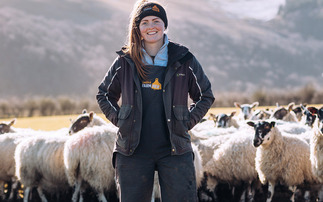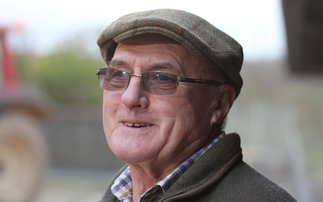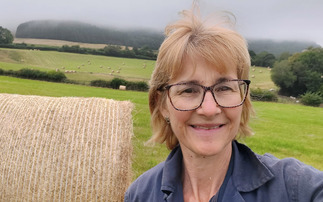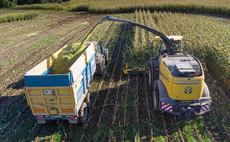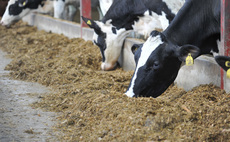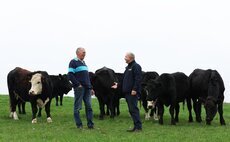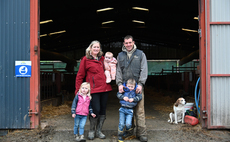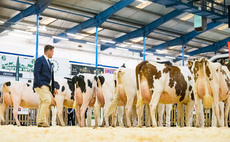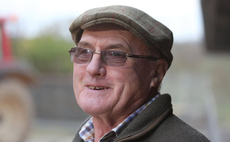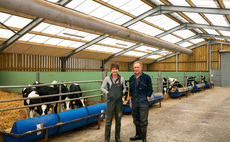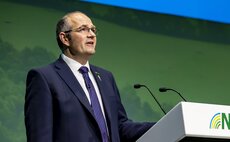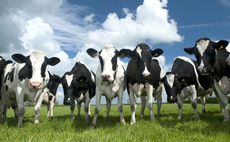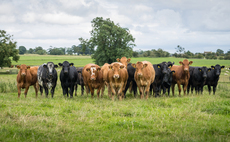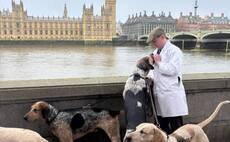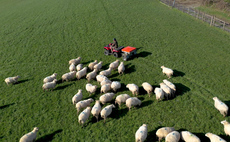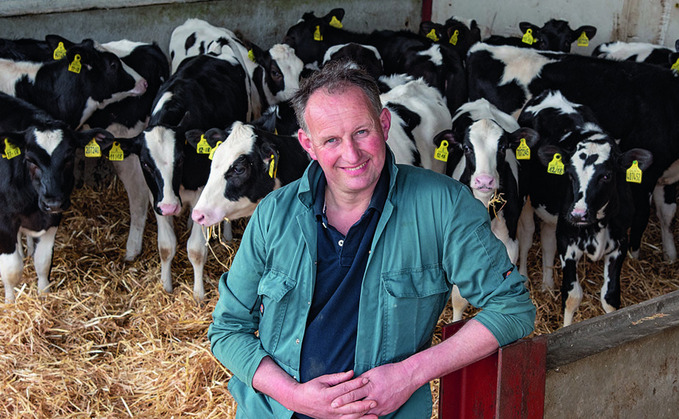
That said, due to some helpful alliances with contractors, we have managed a busy month. Second cut silage was proving challenging to the extent we were mowing one day in the rain followed by a dry day, then a wet day as this was the only way we could harvest. Yields were most sobering and helped to bring us down to earth after generous first cuts.
Winter dry cow diet management can prove challenging, especially as we try our best to make high production feedstuffs through the year to maximise output, however dry cow feed ideally needs to be the complete opposite.
For us, a dedicated area of stewardship-type ground provided an opportunity to create a dry cow diet that ticked the box. Waiting for maturing grass and reasonable weather is worthwhile, however a short window this time around required us to be ready at the drop of a hat.
That same window allowed us to combine our modest area of winter barley and bale the straw.
Normally, forage rape would be sown but last year's frost damage made me wonder whether we ought to try forage rye instead, providing a useful winter bite and stewardship credentials to boot.
Managing grazing has without doubt been a case of famine throughout last month, with silage from last year in the summer clamps being brought out to bridge the gap. Once the rain made the grass grow again, we pre-mowed as much of the grazing block as we felt was necessary. This process has effectively dealt with the seed heads and kick-started the pastures.
It seems the ideal is to measure the grass at pre-mow stage, then after the milking portion have moved on, tidy up with dry stock. The more accurate the measure, the more effective the whole process. What you can't measure, you can't manage.
The seemingly relentless quest from society to reduce livestock emissions has resulted in the idea to potentially cull thousands of dairy cows in Ireland. When we compare the growth in air travel and car usage in the past half-century with the efficiencies made in dairy farming in the same period, I am at a loss to understand why the pressure on food production seems far more draconian than that on transportation.
I wonder if those who are trying to manage food inflation are aware of the possible ramifications of the proposed culling. Surely it is not their intention to inflate the price of locally produced food thereby encouraging 'cheap' imports from regions where the production methods are potentially much less sustainable than those where the culls have taken place. Everybody, sooner or later, sits down to a banquet of consequences.








